‘When Life Gives You Tangerines’: A love letter to endurance, memory, and the women of Jeju
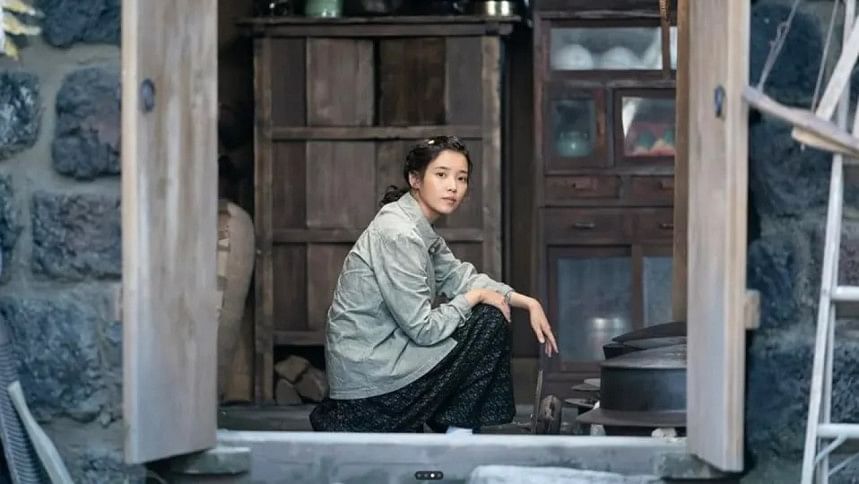
"When Life Gives You Tangerines" has sparked a frenzy on social media, quickly becoming one of the most talked-about K-dramas of the year. It is not just the powerhouse performances of IU and Park Bo-gum or its beautifully shot cinematography that have captured the audience's attention but the way the series lingers, offering a meditation on love, family, and time that feels both universal and deeply rooted in Korean culture. The show, which takes its time to unfold, has become a viral sensation, with fans and critics alike drawn to its emotional depth and understated storytelling. But beyond the buzz, this show's quiet power lies in the way it draws you in, inviting you to reflect on the intricacies of life, love, and the enduring bonds that shape us.
The story begins in the 1950s with Ae-sun, a young woman desperate to escape the quiet fate assigned to her as a Jeju girl (a girl who lives on South Korea's largest island Jeju). Played with a raw, almost unvarnished honesty by IU, Ae-sun is no hero in the traditional sense. She is headstrong, even self-centered at times, full of dreams but weighed down by her circumstances. She wants to write poetry, leave Jeju, and be known. But she is born into a world that tells her, explicitly and repeatedly, that a woman's dreams are unaffordable luxuries. IU inhabits Ae-sun so completely that it is hard to believe she is acting at all. Her voice, sometimes trembling with suppressed rage, sometimes brimming with suppressed affection, never feels performative. She does not ask the audience to sympathise with her; she demands that we see her in all her contradictions. She is proud, petty, poetic, and deeply human.
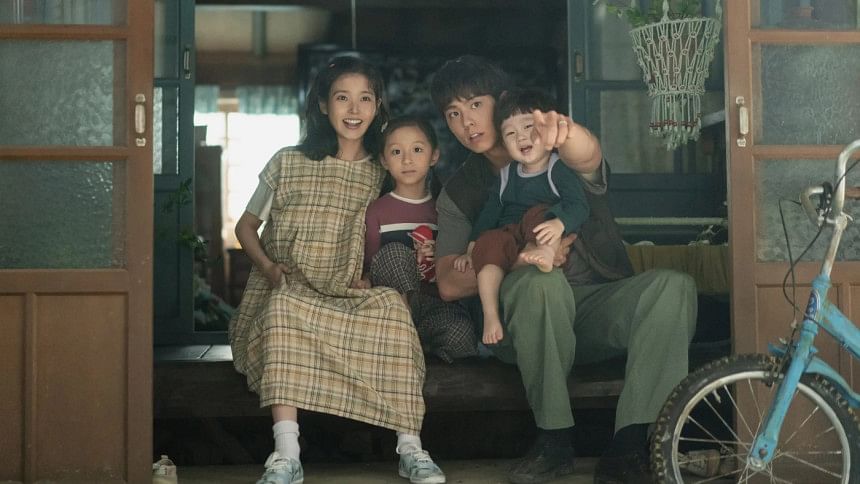
Opposite her is Gwan-sik, portrayed in youth by Park Bo-gum. Where Ae-sun burns, Gwan-sik endures. A man of few words and immense emotional intelligence, he is the embodiment of a love that is patient and persistent, not the kind that sweeps you off your feet, but the kind that waits in the rain, year after year, never asking for anything in return. Park Bo-gum strips away his usual polished demeanour to play a man who barely looks anyone in the eye but whose every gesture, even carrying Ae-sun's burdens, and selling her produce at the market, overflows with devotion. His restraint is one of the show's emotional anchors.
Jeju itself becomes more than a setting—it is a living, breathing presence. The island's rugged cliffs, stone walls, and ever-changing skies mirror the characters' inner landscapes. Its history, too, quietly permeates the narrative. The trauma of the Jeju uprising, known in South Korea as the Jeju April 3 incident, alongside the scars of colonialism and dictatorship is not dramatised overtly, but they linger in the background like sea mist. Ae-sun's family doesn't talk about politics, but they live with its consequences. Poverty after the Korean War, the cultural suppression of Jeju residents' identity, and the economic anxiety of the IMF crisis in the '90s—these moments shape them without defining them.
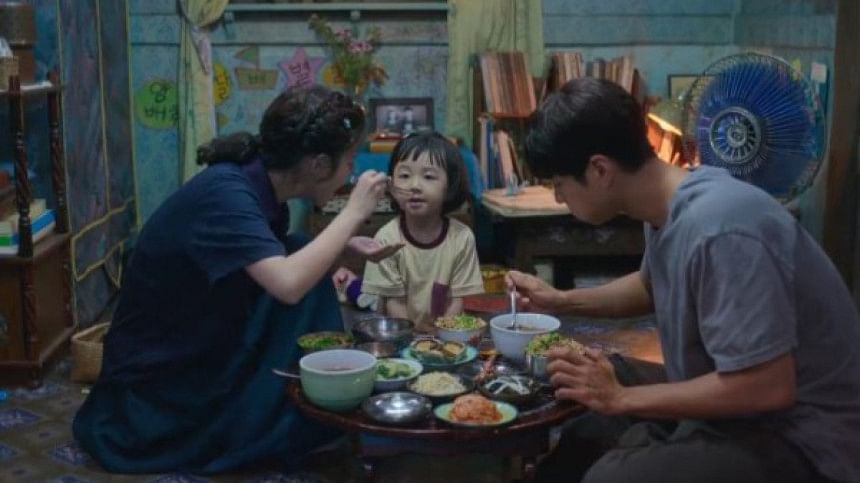
As the years pass, the story transitions across generations and actors. Moon So-ri steps into Ae-sun's later years, layering the same character with new dimensions, bitterness, pride, guilt, and the weight of memory. Park Hae-joon takes over as the older Gwan-sik, quietly holding space for a love that has long gone unacknowledged, yet never wavered. Their performances are less about transformation and more about continuity. It is not that Ae-sun and Gwan-sik become different people as they age; rather, they become more fully themselves.
The brilliance of the show lies in its refusal to sensationalise the lives it portrays. Ae-sun does not become a famous poet and Gwan-sik never leaves Jeju, even though he wishes to only because of Ae-sun. Their children, shaped by their sacrifices, both silent and otherwise, live lives both ordinary and extraordinary. The show resists the temptation to tie things up neatly. Relationships remain frayed, forgiveness is imperfect, and the long arc of love does not always bend toward clarity. Director Kim Won-seok, known for "My Mister", brings forth the series' identical emotional patience here. Each scene is framed with the sensitivity of someone who understands that real drama lies in the spaces between words. Time stretches, conversations drift, and silences throb with meaning. Nothing is rushed, and yet nothing feels indulgent. Writer Im Sang-choon, whose previous works leaned more into romantic comedy, shows extraordinary maturity here, threading together national history and personal longing without ever losing sight of the individuals at the story's heart.
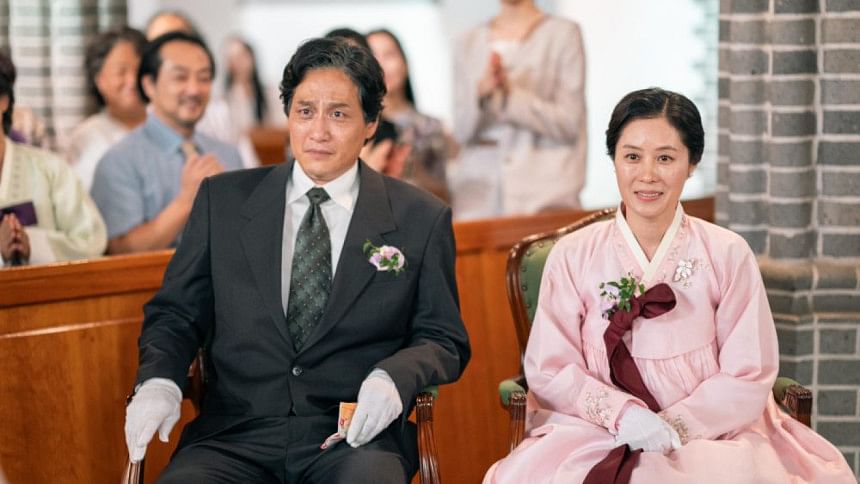
The show redefines the archetype of the Korean mother — Ae-sun is not a martyr, she is angry, disappointed, hopeful, and deeply flawed. She resents her daughter for leaving, even as she pushes her to succeed. She berates her children for forgetting her, even though she chooses to push them away. And yet, she is never less than deeply lovable. In Ae-sun, we see the echoes of millions of Korean women whose lives were defined by labor and loss, who carried nations on their backs and still found time to scold their children for not calling enough. When Gwan-sik eventually dies — it happens not in Jeju but in a hospital in Seoul, a cruel irony for a man who never wished to leave the island — his death is not dramatised. It is quiet, almost abrupt, and yet it devastates, not because of the spectacle, but because of the steady, self-effacing love that preceded it. In life, he waited. In death, he is the absence that lingers.
The show's pacing may feel glacial to some viewers, especially those accustomed to the tightly woven plot tensions of modern K-dramas. However, its slow burn is its strength. It unfolds like memory itself—unreliable, fatefully recursive, and replete with emotions that resurface years later in the most unexpected moments. It does not ask to be binge-watched, it demands to be remembered. At its core, "When Life Gives You Tangerines" is about what it means to love across time. It is not just romantic love, even though that lingers at the show's borders like an unfinished poem. It is about filial love — complicated, guilt-ridden, and often unreciprocated — the kind that mothers pass to daughters, one that is buried under resentment, and even one that is unspoken but only recognised once it is too late.

 For all latest news, follow The Daily Star's Google News channel.
For all latest news, follow The Daily Star's Google News channel. 


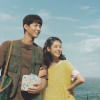






Comments